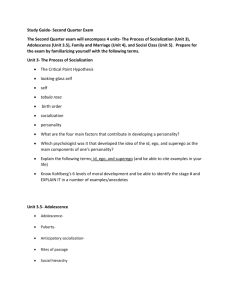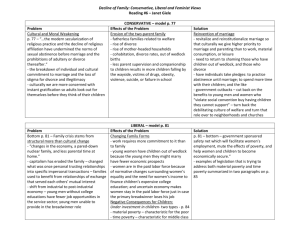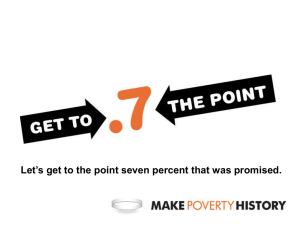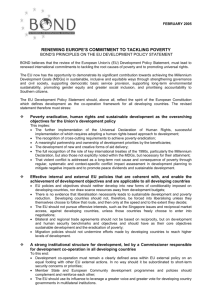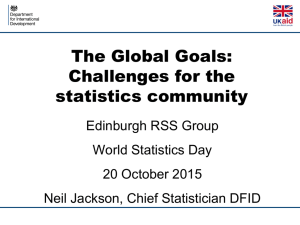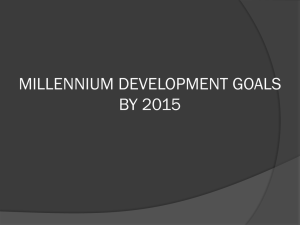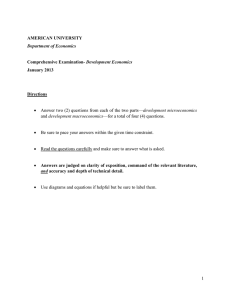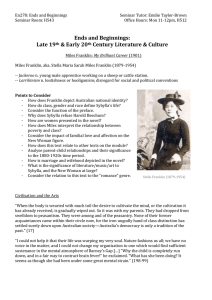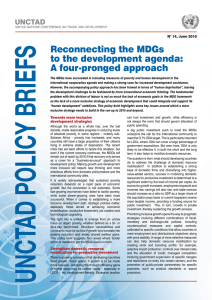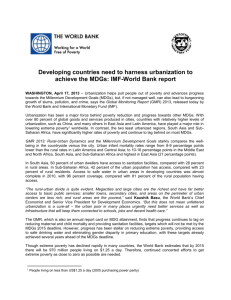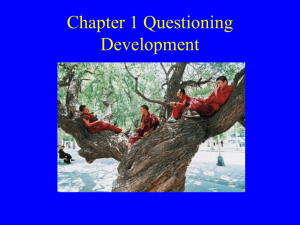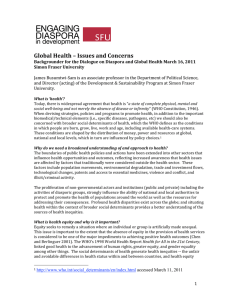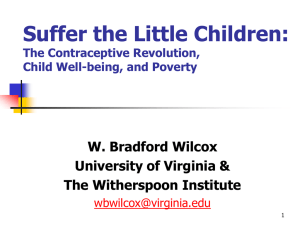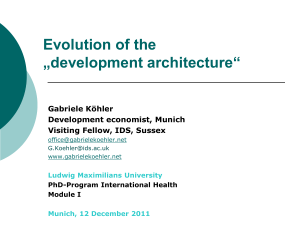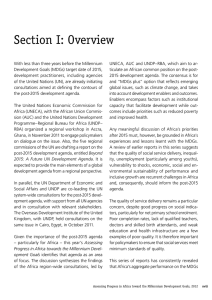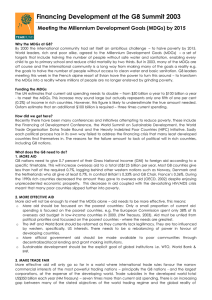here - Family Watch International
advertisement
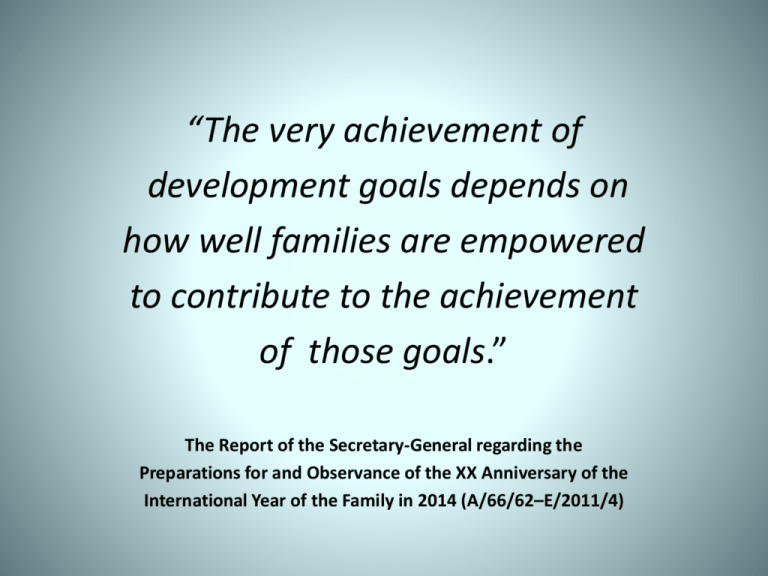
“The very achievement of development goals depends on how well families are empowered to contribute to the achievement of those goals.” The Report of the Secretary-General regarding the Preparations for and Observance of the XX Anniversary of the International Year of the Family in 2014 (A/66/62–E/2011/4) FAMILY CAPITAL Contributes to SOCIAL CAPITAL Factors that Impact Family Capital Human Capital Two-Adult Household Parenting Skills Extended Family Family Stability Economic Resources Communication Skills Coping Skills Values / Spiritual Orientation Informal Supports The Family is Fundamental to Development The family is not only the fundamental group unit of society but is also the fundamental agent for sustainable social, economic and cultural development Doha Declaration, Preamble, 2004 Family Capital increases with: 1. Marriage 2. Birth of wanted children 3. Education of family members and acquiring technical knowledge and skills –Mark Belsey, UN Dept. of Economic & Social Affairs Family Capital: Achieving the MDGS Eradicate Poverty Global Partnership Universal For Education Development Gender FAMILY Environmental Sustainability Equality Combat Reduce Disease Child Mortality Improve Maternal Health Family as the entry point Projects that identify family as the entry point seem to have more success than those that target other social units. Jastus Suchi Obadiah, MDG1, page 35 The Family and the MDGs The World Bank notes that: “Growth in agriculture is, on average, at least twice as effective in relieving poverty as growth outside agriculture. This is partly due to the fact that 75% of the World’s poor live in rural areas.” Community Organizations Family Capital + Family Capital = Collective Strength • Agriculture Training • Improved marketing outlets • Certification for GLOBALGAP, Organic Farming and Fair Trade • Agriculture development • Environmental training • Micro-finance programs • Agriculture supplies • Orphan programs • Socializing INFRASTRUCTURE A good infrastructure is key for eradicating poverty, to help the family succeed: 1. The need to transport farm produce to the market 2. The need for electricity to develop rural industries 3. Health facilities – when people are healthy they are more productive. In many developing countries “Free tuition” DOES NOT MEAN: free uniforms, free food, free books, school supplies or other incidental fees. Parents and care-givers must provide for these additional costs in order for their children to stay in school. Parents help build a school A family garden provides food and funds for school supplies A micro-loan can provide profit to be used for school uniforms and books Re-usable sanitary pads help girls stay in school The ‘Stay Alive’ HIV/AIDS prevention education program requires involvement from parents in the learning process Youth Want Healthy Loving Relationships Child and Newborn Deaths Page 126 Why do children die? • Infection • Undernutrition • Birth asphyxia or prematurity Proven Interventions Page 139 Refocus solutions on the family • • • • • • Education Empowerment Reliable information Family-oriented health packages Community health resources Communication of success “The most successful strategies for improving child and newborn health outcomes focus on the family, leveraging the resources already extant. Family focused healthcare leads to sustainable improvement in health outcomes.” Robert B. Clark, MD, MPH Top Four Preventable Reasons for Maternal Mortality • • • • Hemorrhaging Infections High Blood Pressure – Eclampsia Obstructed Labour Empower Boys/Men Empower Extended Family Culture and Family Cultural beliefs and behavior begin in marriage and family relationships. Parents, at their best, believe in and act in behalf of the next generation. Adolescents who report parental interest and involvement in their lives are about twice as likely to report sexual abstinence prior to marriage. Over one billion acres of farmland in sub-Saharan Africa are moderately or severely nutrient-depleted (World Bank) Family Centered Environmental Programs through Community Development Centers • • • • • • • • • Teach and promote soil building principles Protect existing forests, deserts & bio-diversity Organize reforestation projects Plant trees in the community Install efficient wood burning stoves Establish clean water projects Set polices to control livestock Improve CO2 sequestration through robust crops Enhance utilization of animal and human waste Unlike foreign aid . . . Emigrants’ remittances go directly home into the hands of family members. Foreign Direct Investment

